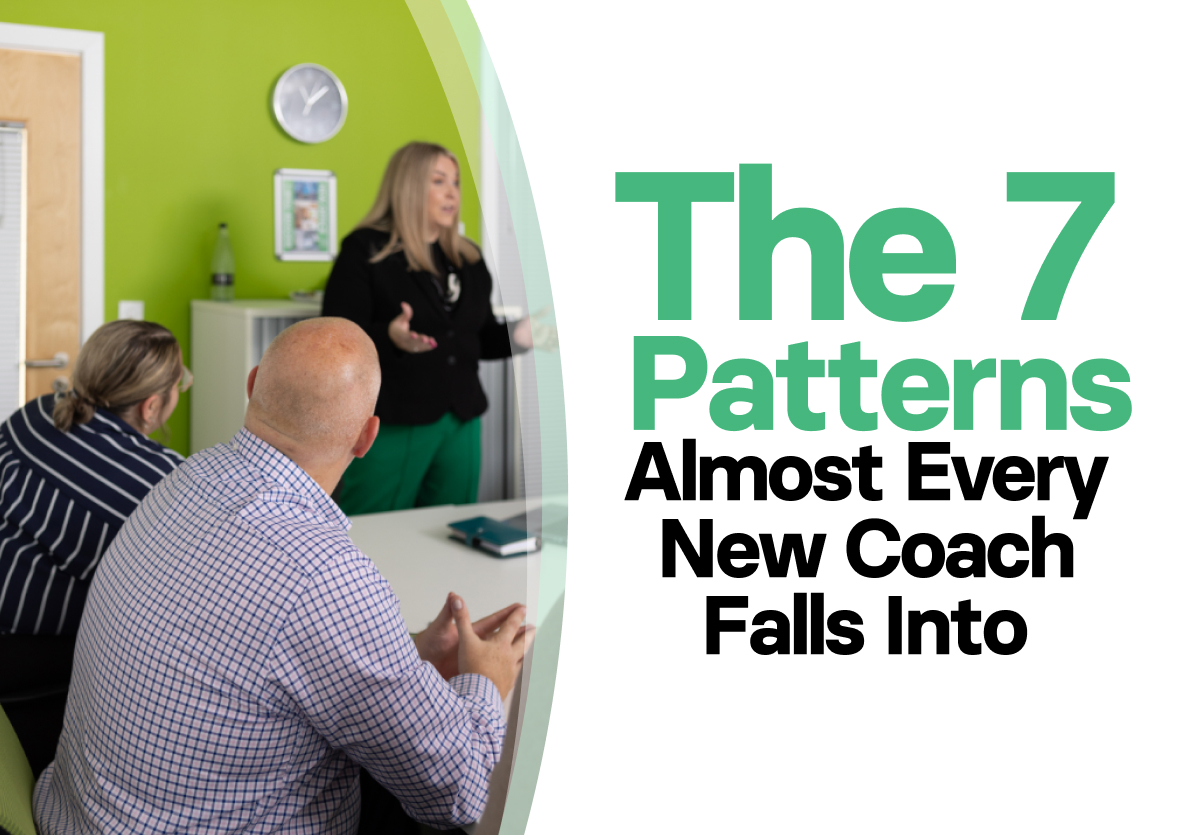Have you come across the coaching spectrum before? Non-directive coaching is a coaching style that sits at one end of this spectrum, with directive coaching sitting at precisely the other.
Where directive coaching is heavy on coach investment, involving active questioning, advice-giving and direction, the non-directive coach takes on a much more passive role within their client’s journey.
Most coaching methods sit at the non-directive end of the spectrum, but is this right for the clients? Could a more directive approach be more effective and assist clients in making positive change and progressing faster?
In this blog, we’ll talk about the problem with non-directive coaching – and what the alternative solution is…
What Is Non-Directive Coaching?
Non-directive coaches take a back seat in their clients’ journey, facilitating a space for individuals to reflect on their problems and source solutions themselves.
Supportive and non-judgemental in essence, non-directive coaching encourages clients to tap into their own experiences and expertise to form their own conclusions about what’s going on. If you’re practising non-directive coaching, you’ll need to use a variety of hands-off therapeutic strategies to allow your client to unpick their issues, such as:
- Listening deeply to hear your client’s perception of their problems
- Scribbling down information to then summarise and paraphrase what they have described
- Asking gentle questions that encourage your client to open their eyes and see other ways of looking at an issue
- Knowing when to remain silent and hold space for your client whilst they process their thoughts.
The Problem With Non-Directive Coaching
Though a gentle, hands-off approach might sound nurturing for a new client, it can often have the opposite effect and seriously delay positive progression.
The problem with non-directive coaching is that it’s one-dimensional. The theory assumes that every individual already has the power to solve their own issues.
In reality, when a client first embarks upon their self-development journey they are often shrouded in subconscious blocks – they don’t know, and more importantly, are unable to consciously access, the proper reasoning to work out what’s holding them back.
And that’s the problem. New clients don’t have the skills to get anywhere. Especially not fast.
Using non-directive coaching in a new-client scenario often means that the client remains stuck in this surface level of the-way-they’ve-always-been. And that’s why they’re here in the first place!
Are you regularly hearing ‘I don’t know’ in response to your coaching session questions? It’s likely you’ve fallen into the non-directive trap and are actively, albeit accidentally, preventing your client from reaching into inner growth.
It’s true to say that even with non-directive coaching, a client should hopefully gain some traction and be able to make positive changes. But this will likely take quite some time. And because the client’s subconscious blocks remain intact, it’s possible that they may not be able to come to a conclusion, or may not even be willing to, at all.
Directive coaching, way over on the other side of the coaching spectrum, moves the client forward at a much greater speed. Directive coaches provide more direction, offer wisdom and guidance and share observations. Through these methods, those subconscious blockers are broken down efficiently and clients are enabled to begin their journey of growth in a better-supported fashion.
Does Non-Directive Coaching Have Its Place?
The non-directive coaching approach does have its restrictions, but it also boasts a helpful array of skills to keep in your coaching toolbox.
Once more beneficial cognitive foundations have been set and a client has grown in confidence through directive methods of coaching, non-directive techniques can certainly be helpful to keep them travelling along the right track.
Non-directive coaching encourages and empowers clients to take responsibility for their problems and work things out for themselves. And this can happen much more readily once those unhelpful barriers have been broken down using directive methods.
Blending The Spectrum For Better Results…
If non-directive and directive coaching both offer significant benefits, then surely a combined approach would be a powerful solution?
That’s where Paseda360 comes in…
Paseda360 is the only coaching training that works along the whole spectrum, taking the most effective techniques from each approach and combining them for a fully adaptive coaching toolkit.
By looking at their client’s life in its entirety and tackling issues on both conscious and subconscious levels, Paseda360 coaches are expertly equipped to meet a variety of needs and help their clients to move past blockers and unlock their potential.
Want to learn more about Paseda360? Check it out here…







